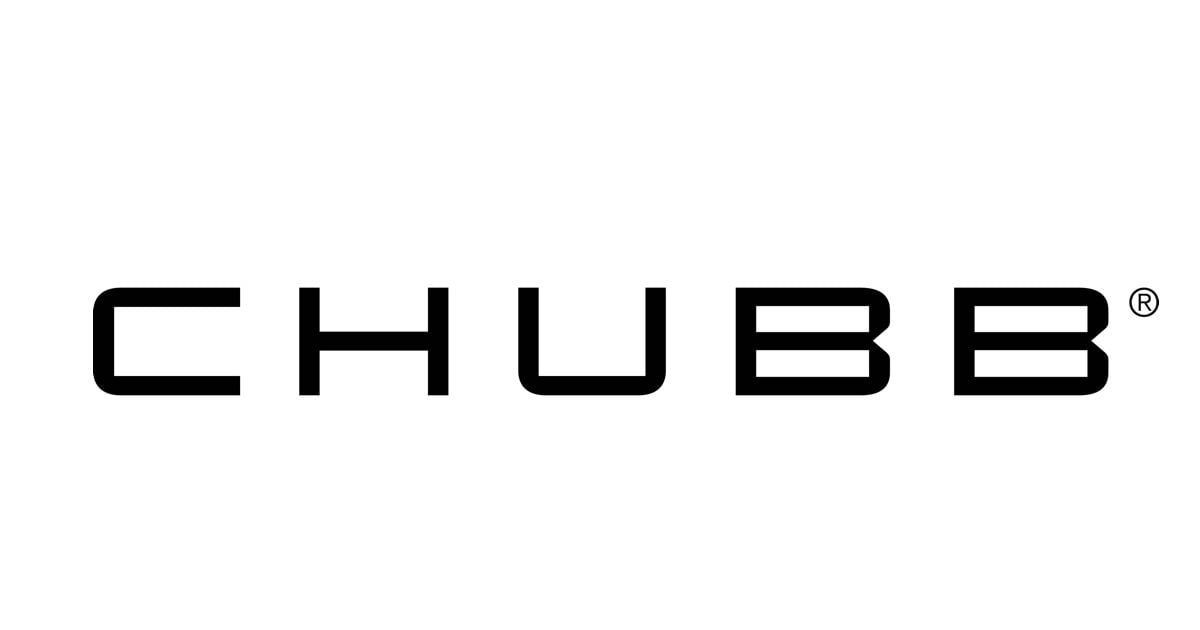Nerdy takeaways
Chubb is the top-rated insurer in New York, offering the best coverage for high-value homes.
Andover Companies is the top regional insurer.
Amica is our pick for the best consumer experience.
State Farm is the best option for most people.
USAA is our top choice for military families.
When shopping for homeowners insurance in New York, consider companies with strong coverage and customer service. We gathered and analyzed data from insurance companies across the state to help you find the best home insurance in New York.
Note: Some insurance companies included in this article may have made changes in their underwriting practices and no longer issue new policies in your state. Even if an insurer serves your state, it may not write policies for all homes in all areas.
The best home insurance in New York
Best coverage for high-value homes

Chubb
- Far fewer consumer complaints than expected for a company of its size.
- Standard coverage includes features that many companies offer only as extras.
- Perks to help you protect your home.
- Most consumers can't get a quote online and will instead need to contact a local agent.
Why it’s worth a look: Chubb homeowners policies come with comprehensive coverage for your house and belongings. The company caters to affluent customers with high coverage limits and white-glove service. Perks include a free home appraisal to help you identify risks and find the right coverage.
Standout feature: If your home is destroyed and you decide not to rebuild, Chubb offers a cash payout.
Average rates: Not available.
» READ MORE: Chubb homeowners insurance review
Best regional insurer

Andover Companies
- Far fewer consumer complaints than expected.
- Includes more generous dwelling and personal property coverage than most insurers.
- Many additional coverage options to choose from.
- Limited online experience.
Why it’s worth a look: Massachusetts-based Andover Companies sells home insurance through independent agents across the Northeast. Its policies come with generous coverage for your belongings. They also include insurance to help bring your home up to current building codes after a claim.
Standout feature: Most Andover policies include guaranteed replacement cost coverage for your house. That means the policy will pay whatever it takes to rebuild, even if it costs more than your coverage limit.
Average rates: Not available.
» READ MORE: Andover Companies homeowners insurance review
Best consumer experience

Amica
- High customer satisfaction ratings and low consumer complaints.
- Platinum Choice package offers extra coverage.
- Dividend policies can return a portion of your premiums.
- You can start a quote online but may have to finish the buying process by phone.
Why it’s worth a look: Amica has a well-earned reputation for good service. The company is a perennial favorite for home insurance in J.D. Power’s customer satisfaction studies. It also draws a low rate of consumer complaints to state regulators, according to the National Association of Insurance Commissioners.
Standout feature: Amica’s Platinum Choice package offers extended coverage for your house, belongings and valuables. For example, it covers computers and phones for damage from water and power surges.
Average rates: Not available.
» READ MORE: Amica homeowners insurance review
Best for most people
State Farm
- User-friendly website.
- Agents offer personalized service.
- Policies generally include extra coverage for your home’s structure.
- Below average for claim satisfaction in a recent J.D. Power study.
Why it’s worth a look: As the country’s largest home insurer, State Farm offers coverage for a wide range of property types. Its default policy comes with solid coverage for your home and belongings, plus a variety of extras you can add.
Standout feature: State Farm policyholders are eligible to get a free Ting smart device from State Farm. Ting monitors your home’s electrical system to help prevent fires.
Average rates: Below are the average annual rates for a range of dwelling coverage limits.
Dwelling coverage amount | Average annual rate |
|---|---|
$200,000 | $880 |
$300,000 | $1,345 |
$400,000 | $1,870 |
$500,000 | $2,420 |
$600,000 | $2,985 |
» READ MORE: State Farm homeowners insurance review
Best for military families

USAA
- Policies include standard coverage that often costs extra elsewhere.
- Fewer customer complaints to state regulators than expected for a company of its size.
- Perks for military homeowners.
- Available only to active military members, veterans, some federal employees and their families.
Why it’s worth a look: USAA sells homeowners insurance to active military, veterans, some federal workers and their families. Its policies include perks for this community. For example, it covers military equipment and uniforms without a deductible.
Standout feature: USAA homeowners policies can help pay expenses associated with recovery after identity theft.
Average rates: Not available.
» READ MORE: USAA homeowners insurance review
Other top home insurance companies in New York
These home insurance providers are also worth a look.
Company | NerdWallet star rating | Average annual rate |
|---|---|---|
Not available | ||
$2,145 | ||
$1,490 |
How much does homeowners insurance cost in New York?
The average cost of homeowners insurance in New York is $1,710 per year, or about $143 per month. That's 31% less expensive than the national average of $2,490 per year for the same amount of coverage.
These rates are based on a sample home insurance policy with $400,000 in dwelling coverage, $300,000 in liability coverage, a $1,000 deductible and no recent claims.
Did you know...
The dwelling coverage limit on your policy should be the amount it would take to rebuild your home, based on the cost of labor and construction in your area. It won't necessarily be the price you paid for the house or how much you could sell it for now. Use our calculator to estimate your home's rebuilding cost.
The median rebuilding cost for New York homes is $445,760, according to data from First Street, a climate risk modeling firm.
Below are the average rates for policies with various dwelling coverage limits.
Dwelling coverage amount | Average annual rate |
|---|---|
$200,000 | $925 |
$300,000 | $1,375 |
$400,000 | $1,710 |
$500,000 | $2,155 |
$600,000 | $2,670 |
The rates above are for homeowners with good credit. In New York, policyholders with poor credit pay an average of $2,770 per year — an increase of 62%.
Average cost of homeowners insurance in New York by city
The amount you pay will vary depending on where you live in the state. For example, the average cost of homeowners insurance in New York City is $3,295 per year, while Buffalo homeowners pay $1,560 per year, on average.
City | Average annual rate | Average monthly rate |
|---|---|---|
Albany | $1,710 | $143 |
Binghamton | $1,490 | $124 |
Buffalo | $1,560 | $130 |
Freeport | $2,620 | $218 |
Harrison | $1,860 | $155 |
Hempstead | $2,350 | $196 |
Ithaca | $1,425 | $119 |
Long Beach | $2,620 | $218 |
Middletown | $1,615 | $135 |
Mount Vernon | $2,050 | $171 |
New Rochelle | $2,095 | $175 |
New York | $3,295 | $275 |
Niagara Falls | $1,640 | $137 |
Port Chester | $1,895 | $158 |
Poughkeepsie | $1,505 | $125 |
Rochester | $1,540 | $128 |
Rome | $1,590 | $133 |
Schenectady | $1,595 | $133 |
Spring Valley | $1,800 | $150 |
Syracuse | $1,640 | $137 |
Troy | $1,640 | $137 |
Utica | $1,700 | $142 |
Valley Stream | $2,620 | $218 |
White Plains | $1,895 | $158 |
Yonkers | $2,050 | $171 |
The cheapest home insurance in New York
Here are the insurers we found with the cheapest rates for a variety of dwelling coverage limits.
Company
NerdWallet star rating
Average annual rate
Preferred Mutual
Not rated
$515
Ontario Insurance
Not rated
$590
Dryden Mutual
Not rated
$625
Utica National
Not rated
$635
Sterling Insurance
Not rated
$640
Company
NerdWallet star rating
Average annual rate
Preferred Mutual
Not rated
$715
Dryden Mutual
Not rated
$850
Ontario Insurance
Not rated
$900
Utica National
Not rated
$900
NYCM
Not rated
$960
Company
NerdWallet star rating
Average annual rate
Preferred Mutual
Not rated
$920
Dryden Mutual
Not rated
$1,080
Ontario Insurance
Not rated
$1,160
NYCM
Not rated
$1,215
Utica National
Not rated
$1,240
Company
NerdWallet star rating
Average annual rate
Preferred Mutual
Not rated
$1,135
Dryden Mutual
Not rated
$1,305
Ontario Insurance
Not rated
$1,425
NYCM
Not rated
$1,475
Sterling Insurance
Not rated
$1,545
Company
NerdWallet star rating
Average annual rate
Preferred Mutual
Not rated
$1,345
Dryden Mutual
Not rated
$1,535
Ontario Insurance
Not rated
$1,660
NYCM
Not rated
$1,745
Sterling Insurance
Not rated
$1,800
Cheap homeowners insurance in New York by claims history
Here are the cheapest home insurance companies in New York for homeowners who've filed a recent claim.
Company | NerdWallet star rating | Average annual rate |
|---|---|---|
Preferred Mutual | Not rated | $985 |
Dryden Mutual | Not rated | $1,080 |
Ontario Insurance | Not rated | $1,160 |
Sterling Insurance | Not rated | $1,260 |
Utica National | Not rated | $1,410 |
These rates are based on a sample homeowner with good credit, $400,000 of dwelling coverage, $300,000 of liability coverage and a $1,000 deductible.
Cheap homeowners insurance in New York by credit score
Here are the cheapest home insurance companies in New York for homeowners with poor credit. Read more about how your credit scores impact home insurance rates.
Company | NerdWallet star rating | Average annual rate |
|---|---|---|
Dryden Mutual | Not rated | $1,080 |
Ontario Insurance | Not rated | $1,160 |
Sterling Insurance | Not rated | $1,260 |
Utica National | Not rated | $1,505 |
Preferred Mutual | Not rated | $1,555 |
These rates are based on a sample home insurance policy with $400,000 in dwelling coverage, $300,000 in liability coverage, a $1,000 deductible and no recent claims.
Common discounts
Make sure to ask your home insurance company about any discounts you may be eligible for. Here are some of the most common:
Many insurers offer savings if you buy more than one policy, such as home and car insurance. See our picks for the best home and auto insurance bundles.
Got a burglar alarm, smoke detectors or a smart device that alerts you if you have a leak? Safety and security features like these could earn you a discount.
Sign up for paperless billing or set your premiums to autopay, and you could get a discount.
Many insurance companies give discounts to customers who’ve gone a certain number of years without filing a home insurance claim.
Some insurers offer discounts to new policyholders or reward those who’ve stuck around for a while.
Teachers, doctors, members of the military and others may be eligible for discounts from certain insurers.
Learn more about common home insurance discounts.
Common New York home insurance problems
Here are a few issues to keep in mind when buying home insurance in New York.
Flooding. More than 620,000 people in the state live in flood-risk areas, according to the New York Department of Environmental Conservation. But homeowners insurance won’t pay for flood damage. If you want coverage, you’ll need to buy separate flood insurance.
To check your flood risk, start with the federal government’s flood maps. However, these maps don’t always capture all types of flood risk. You may want to check another source such as First Street, a company that models climate hazards. Enter your address at the top of the page to see your home’s flood risk rating.
Winter weather. Homeowners insurance covers some problems caused by cold temperatures and winter storms. For example, it’ll generally pay to clean up water damage from a frozen pipe or fix your roof if a blizzard knocks a tree onto it. However, it won’t pay for flooding caused by melting snow unless you have flood insurance.
Tropical storms and nor’easters. New York sees various types of severe storms that can bring heavy wind and rain. Most homeowners policies cover wind damage unless the home is in a high-risk area along the coast. It’s worth checking whether you have a separate deductible for wind claims. If so, it may be higher than the deductible for other types of damage. For full coverage from storms, you'll also need flood insurance.
Common optional coverage
A standard homeowners policy can sometimes fall short, so it's worth looking for ways to make it more comprehensive. For example, we recommend asking if your insurer offers extended or guaranteed replacement cost coverage for your home. These add-ons give you extra dwelling coverage in case it costs more than you expect to rebuild your home after a disaster. Having this coverage can be a useful hedge against inflation.
Here are a few additional types of coverage you may want to buy.
Floods are the most common weather disaster in the U.S. and can happen anywhere, not just coastal areas. You can buy flood insurance through the federal government or from private companies. Learn whether you need flood insurance.
Homeowners policies generally won’t cover damage if a drain backs up into your home or your sump pump fails. Adding water backup coverage can help with these issues.
Homeowners policies may cover your stuff on an actual cash value or replacement cost basis. With actual cash value, the policy will pay less for older items that have lost value over time. To get enough of a claim payout to buy brand-new items, opt for replacement cost coverage.
If you have expensive jewelry, fine art or other valuables, you may need extra insurance for them. Learn more about scheduled personal property coverage.
Service line coverage pays to fix damaged water, gas, sewer or other underground lines on your property.
If your HVAC system or another major appliance fails, equipment breakdown coverage can help pay for repairs.
New York Property Insurance Underwriting Association
The New York Property Insurance Underwriting Association (NYPIUA) has been around since 1968. Any property owner who can’t get coverage from a private insurer is welcome to apply.
Coverage from the NYPIUA is offered on an actual cash value basis and includes:
$600,000 in dwelling coverage for one- to four-family residential properties.
Up to $250,000 in personal property coverage.
$100,000 coverage limit for vacant properties.
Note that the association’s policies don’t cover personal liability, theft or flooding. Learn more about how to get flood insurance.
Get home insurance quotes in minutes
Answer a few questions to see custom quotes and find the right policy for you.New York State Department of Financial Services
The New York State Department of Financial Services oversees New York’s insurance industry. You can check its website to learn about insurance basics or file a complaint. You can also email consumers@dfs.ny.gov or call the agency’s toll-free helpline at 800-342-3736.
How we review home insurance
Our editorial team considers these factors when rating homeowners insurance companies:
This part of our star rating is based largely on consumer complaints to state regulators, as reported by the National Association of Insurance Commissioners. When available, we also include each company’s performance in the most recent J.D. Power Home Insurance Study. Other factors in our consumer experience score include customer-friendly features such as online claims filing and quotes.
We use AM Best and Demotech ratings to confirm each insurer’s long-term financial stability and ability to pay claims.
Companies score higher if they offer many common endorsements and include more comprehensive coverage in their standard plans. In particular, we look at features such as extended coverage for the structure of your home and replacement cost coverage for personal belongings.
We evaluate how many of the most common home insurance discounts each company offers.
See our complete homeowners insurance rating methodology.
Frequently asked questions
Homeowners insurance isn't required by New York state law. However, your mortgage lender may require you to buy it. For more information, read Is Homeowners Insurance Required?
New York homeowners insurance generally costs less than the national average, but your own rate may be high for various reasons. For example, you may pay more if you have poor credit or live in a neighborhood with a high crime rate. Home insurance rates are also going up across the country due to inflation.
Here are three ways to save money on homeowners insurance in New York:
Shop around to make sure you’re getting the best rate.
Choose a higher deductible. In case of any claims, you’ll pay more out of pocket, but your premiums will be lower.
Bundle your home and auto insurance for an overall lower rate.
Learn more about home insurance discounts.
NerdWallet writers are subject matter authorities who use primary, trustworthy sources to inform their work, including peer-reviewed studies, government websites, academic research and interviews with industry experts. All content is fact-checked for accuracy, timeliness and relevance. You can learn more about NerdWallet's high standards for journalism by reading our editorial guidelines.
- 1.New York Department of Environmental Conservation. Flood Response and Substantial Damage in New York State. Accessed Feb 20, 2026.
Star rating methodology
NerdWallet’s homeowners insurance ratings reward companies for customer-first features and practices. Ratings are based on weighted averages of scores in several categories, including financial strength, consumer complaints, coverage, discounts, claims process and website functionality. These ratings are a guide, but we encourage you to shop around and compare several insurance quotes to find the best rate for you. NerdWallet does not receive compensation for any reviews or star ratings.
Here’s how we weighted each category to come up with our list of the best home insurance companies:
Consumer experience (40%).
Financial strength (30%).
Coverage (25%).
Discounts (5%).
Read our full home insurance ratings methodology for more details.
Homeowners insurance rates methodology
NerdWallet calculated median rates for 40-year-old homeowners from various insurance companies in ZIP codes across all 50 states and Washington, D.C. All rates are rounded to the nearest $5.
Sample homeowners were nonsmokers with good credit living in a single-family, two-story home built in 1984. They had a $1,000 deductible and the following coverage limits:
$400,000 in dwelling coverage.
$40,000 in other structures coverage.
$200,000 in personal property coverage.
$80,000 in loss of use coverage.
$300,000 in liability coverage.
$1,000 in medical payments coverage.
We made minor changes to the sample policy in cases where rates for the above coverage limits or deductibles weren’t available.
In states where credit is a rating factor, we changed the credit tier from “good” to “poor,” as reported to the insurer, to see rates for homeowners with poor credit.
In select states, we added a single wind damage claim to see rates for homeowners with a claim on their record.
These are sample rates generated through Quadrant Information Services. Your own rates will be different.
Complaint methodology
NerdWallet examined complaints received by state insurance regulators and reported to the National Association of Insurance Commissioners in 2022-2024. To assess how insurers compare with one another, the NAIC calculates a complaint index each year for each subsidiary, measuring its share of total complaints relative to its size, or share of total premiums in the industry. To evaluate a company’s complaint history, NerdWallet calculated a similar index for each insurer, weighted by market shares of each subsidiary, over the three-year period.
NerdWallet conducts its data analysis and reaches conclusions independently and without the endorsement of the NAIC. Ratios are determined separately for auto, home (including renters and condo) and life insurance.
Rebuilding cost methodology
The median home rebuilding cost referenced above is based on 2025 replacement cost data from First Street, a climate risk modeling firm. Actual replacement costs may vary based on factors like location, square footage, construction materials, the age of your home and local labor costs.







